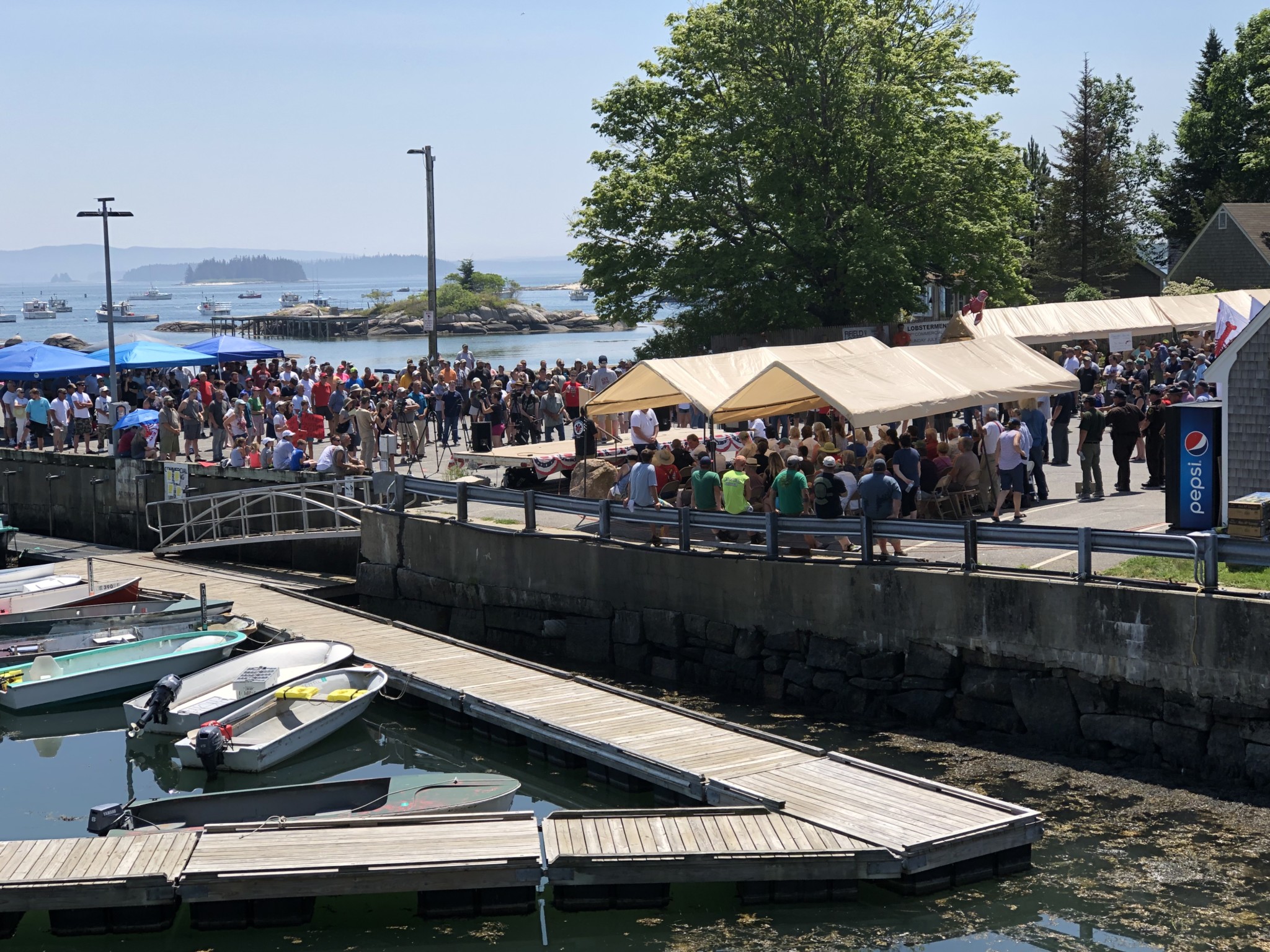Stonington is a tiny hamlet far off the beaten path in Downeast Maine. As the crow flies, it's about 80 miles from Portland. On the road, it's double that. Suffice it to say, it's hard to end up there by accident.
So it was by design that the state's Gov. Janet Mills, Sen. Susan Collins, and U.S. Reps. Chellie Pingree and Jared Golden were part of a large crowd of elected officials to appear at a rally in the state’s lobster capital over the weekend.

Maine Rep. Chellie Pingree speaks to the crowd in support of Maine's lobster fleet. Maine Rep. Chellie Pingree photo
On Sunday, July 21, a local gathering was slated to bring attention to pending federal requirements for the state's lobster fleet to cut its lines in the water by 50 percent as part of a broad federal proposal to protect endangered right whales. Maine's fleet has long led the charge to adapt its gear in efforts to reduce interactions with whales. But this proposed rule, industry leaders say, would only harm the fleet without serving to protect the whales.
“NOAA knows that not one right whale has been proven to have been entangled in Maine rope in many years, and the new proposed regulations would only cause extreme danger to our lobstermen," said lobsterman Julia Eaton, who helped organize the gathering.
On May 28, Sen. Angus King, Collins, Pingree and Golden submitted a letter to acting NOAA Director Neil Jacobs. On July 10, the delegation submitted a similar letter to President Donald Trump, urging him to intervene in the conflict and acknowledge that Maine's fishing gear does not appear to pose a risk to the whales' shrinking population.
The industry, however, is fighting a battle of perception as a result of an increase in entanglements, all of which have occurred in Canadian waters — none in the Gulf of Maine. In 2019, three right whale deaths have been attributed to ship strikes and three to entanglements with fishing gear. Two more deaths announced late last week are as yet unattributed.
On Thursday, July 11, the governor wrote that she would stand with the fleet in fighting NOAA’s “foolish, unsupported and ill-advised regulations.”
“As governor, I will always defend our lobster industry, which is why I have directed Commissioner [Patrick] Keliher to evaluate a risk reduction target for Maine that is commensurate to any actual risk posed by the lobster industry," said Mills in Stonington. "We are committed to pursuing solutions based on sound science that protect both lobstermen and right whales.”

Maine's congressional delegation gathers for a scientific briefing on the lobster fleet's objection to a new federal proposal. Maine Rep. Chellie Pingree photo
Before attending the rally, Mills, Collins, Pingree, Golden and a small group of scientists gathered at the Stonington-based Maine Center for Coastal Fisheries for a briefing on the science that supports the lobster fleet's opposition to the regulatory changes.
"The new NOAA regulations could put many Maine lobstermen out of business without a guarantee that any right whales would be saved," Golden said. "We’re calling for solutions based on sound science and good data that protect lobstermen and whales."
Keliher is scheduled to meet with lobstermen in planned meetings along the coast next month to announce the department’s findings and a plan that more accurately reflects the risks posed by Maine's lobster fishery.







